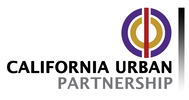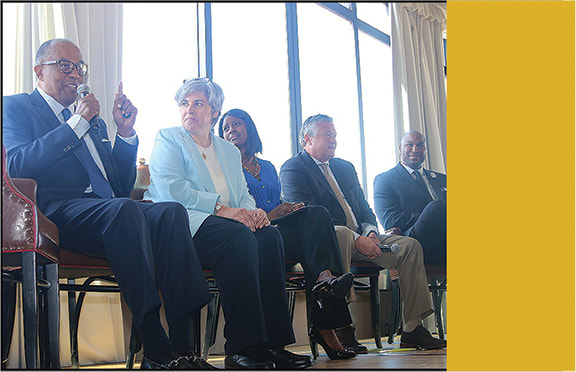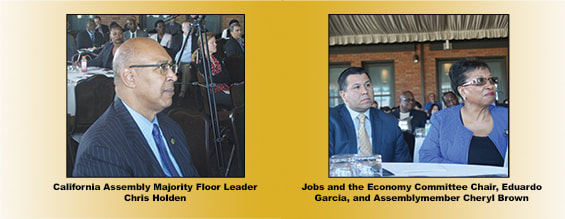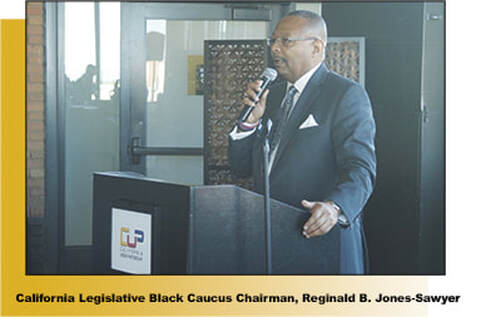Urban Partnership Forum Focuses on Empowering Low Income Communities, Building Wealth and Fighting Poverty
Chief executives of community development corporations talked about accomplishments, resources and challenges linked to growing businesses and creating affordable housing in low to moderate income communities. From left to right, Clarence Williams - California Capital FDC; Mary Rogier - Northern CA Community Loan Fund; Tunua Thrash-Ntuk - West Angeles CDC; Doug Bystry - Clearinghouse CDFI; and Darrell Teat - Nehemiah Corporation.
SACRAMENTO, CALIFORNIA - In the midst of national conversations on race and injustice, the California Urban Partnership recently convened an exciting Policy Forum Breakfast focused on access to capital. Over 200 community, business and academic leaders, along with government representatives and elected dignitaries attended.
Entitled The State of Community Development Capital, this event aimed to develop a small business and
homeownership agenda to help free low income Californians from being trapped in poverty and the criminal justice system. Sponsors of the free breakfast forum included AT&T, JP Morgan Chase & Company, Comcast, Nehemiah Corporation, Clearinghouse CDFI and the Northern California Community Loan Fund.
President and chief executive officer of the CUP, Malaki Seku-Amen, opened the event saying “Here is our great moment to be solution-oriented. We’re going to take the ‘Hands Up, Don’t Shoot’ movement to a higher level!”
“Today we will join our HANDS together! We will use our minds to learn about, and create, meaningful solutions together. We will begin fighting and working together to meet the needs of our communities!”
California now has a drastically new and challenging environment for community economic development. While research and economists point to entrepreneurship, revitalizing distressed neighborhoods and building family wealth as solutions to help low-to-moderate income Americans rise into the middle class, all of California’s programs to help make that happen are weak, or have been eliminated.
“Today we will join our HANDS together! We will use our minds to learn about, and create, meaningful solutions together. We will begin fighting and working together to meet the needs of our communities!”
California now has a drastically new and challenging environment for community economic development. While research and economists point to entrepreneurship, revitalizing distressed neighborhoods and building family wealth as solutions to help low-to-moderate income Americans rise into the middle class, all of California’s programs to help make that happen are weak, or have been eliminated.
The CUP forum was critically important for helping grassroots stakeholders and new policymakers understand what resources are currently in place, what gaps need to be filled, and how they can work together to make capital accessible and adequate for the business development and affordable housing needs of low income and communities of color.
Emerging from the presentations and panel discussions was the recommendation that the CUP focus on organizing partners and supporters to advocate for the following:
Emerging from the presentations and panel discussions was the recommendation that the CUP focus on organizing partners and supporters to advocate for the following:
- Create a California New Markets Tax Credit program for the purpose of attracting private sector investment to California’s low income neighborhoods.
- Greater insurance industry investments in urban and economically disadvantaged communities through the California Organized Investment Network (COIN).
- Funding for increased technical assistance, financial literacy and coaching, and capacity building for entrepreneurs and families.





